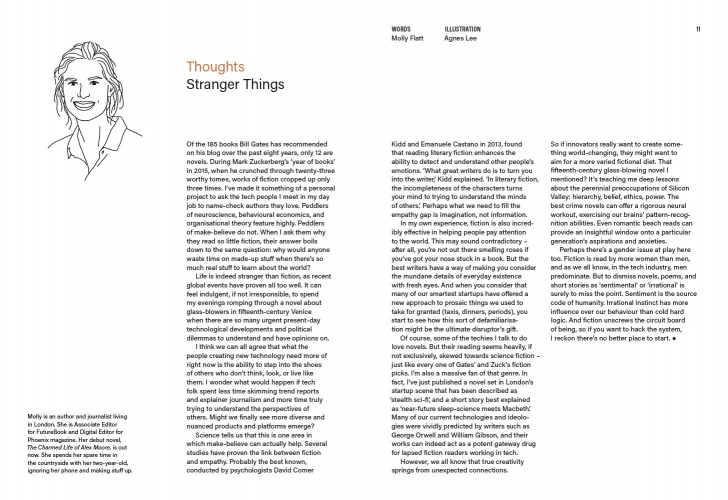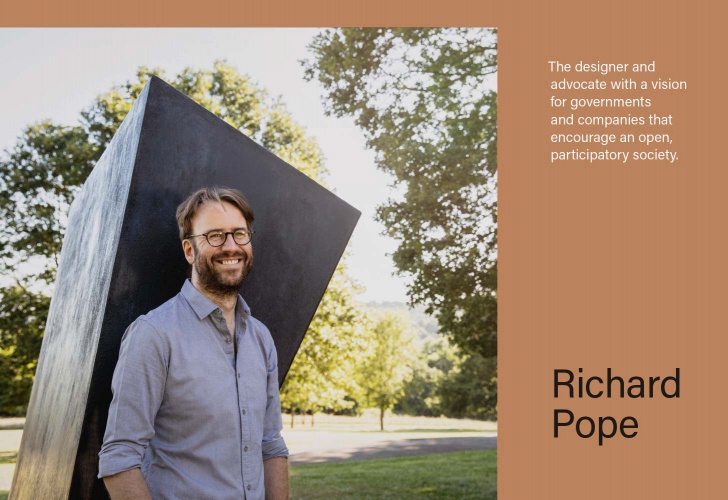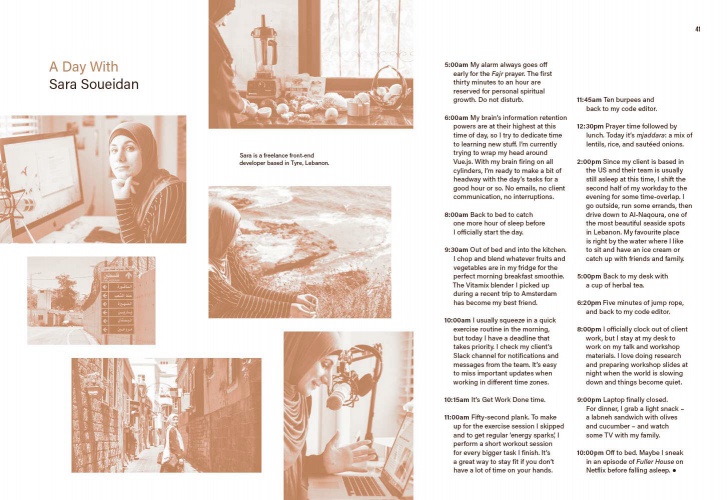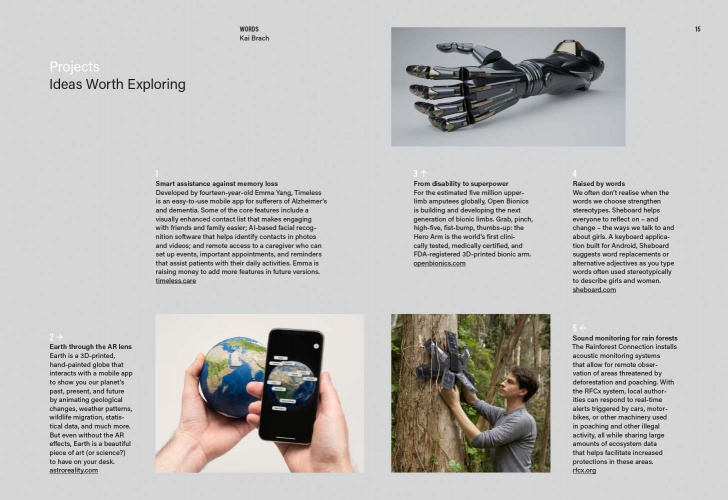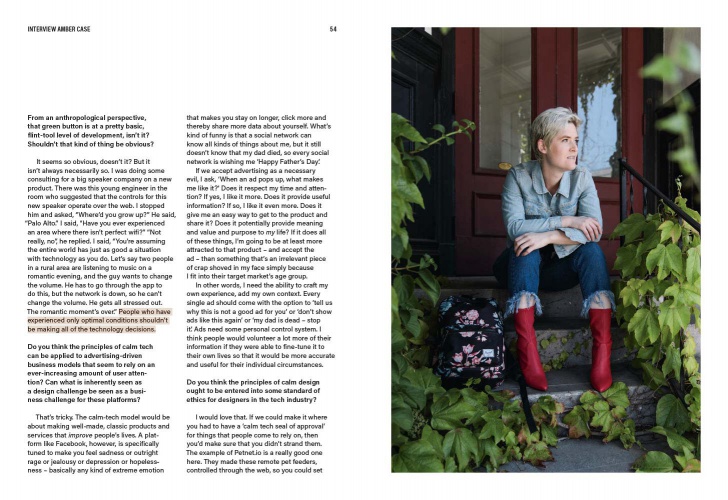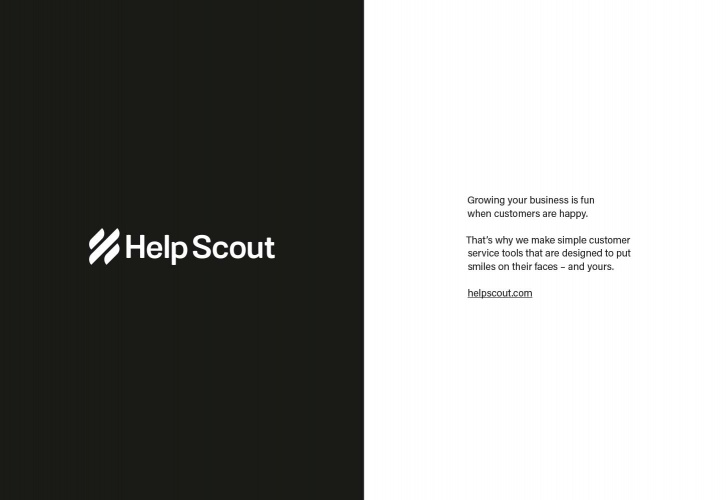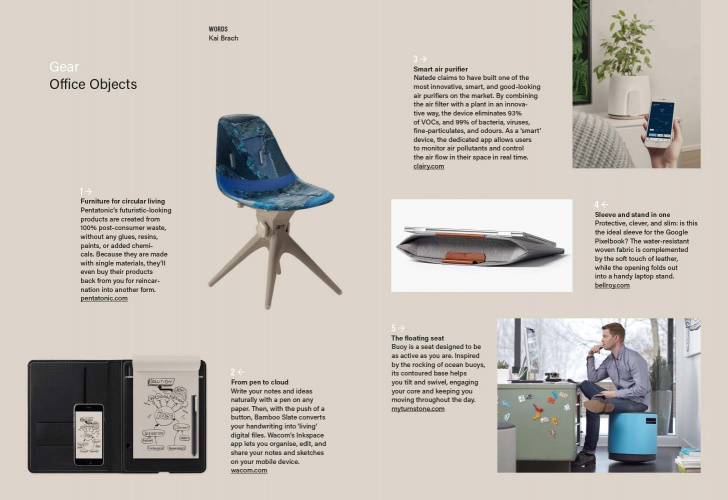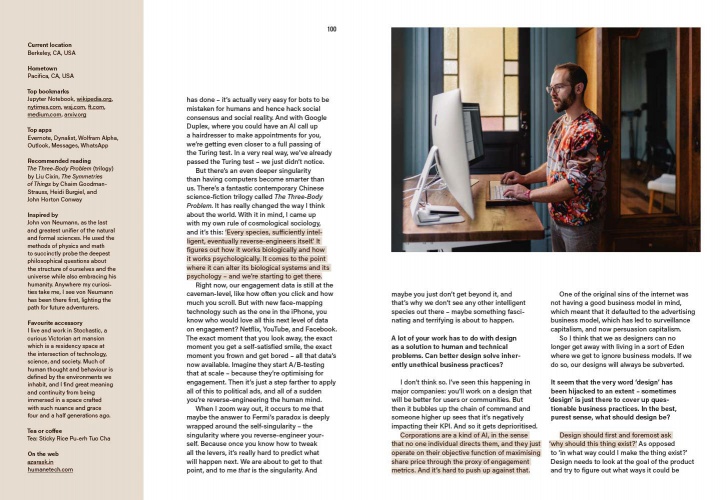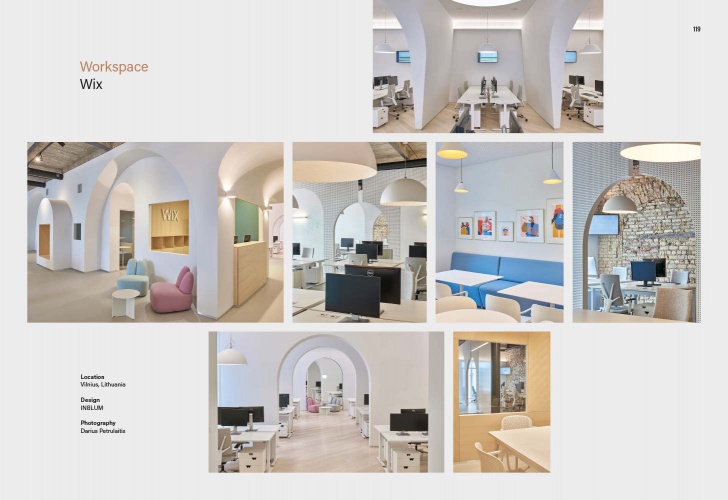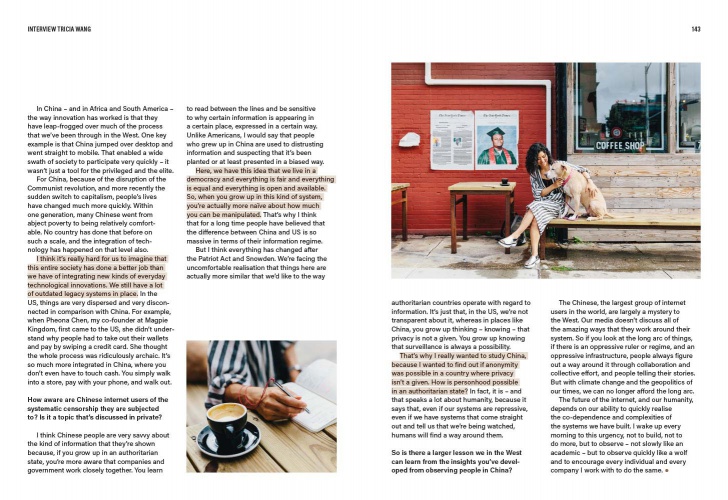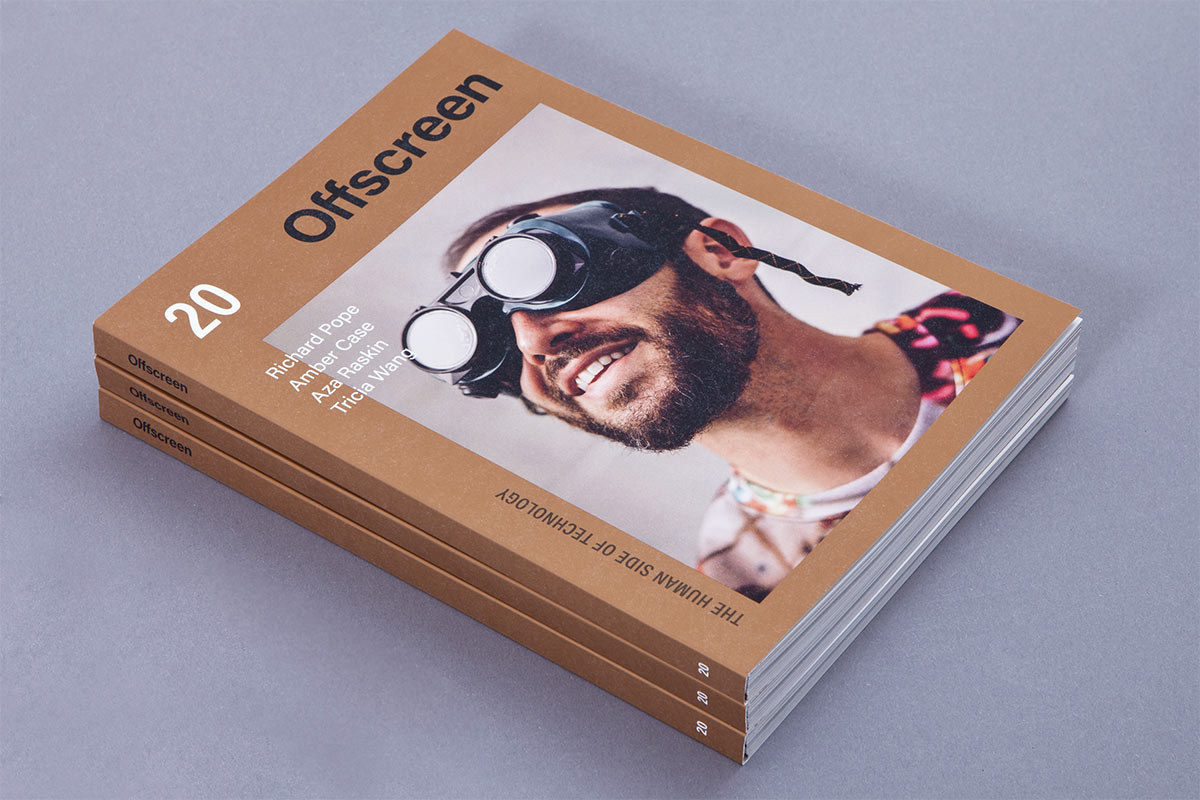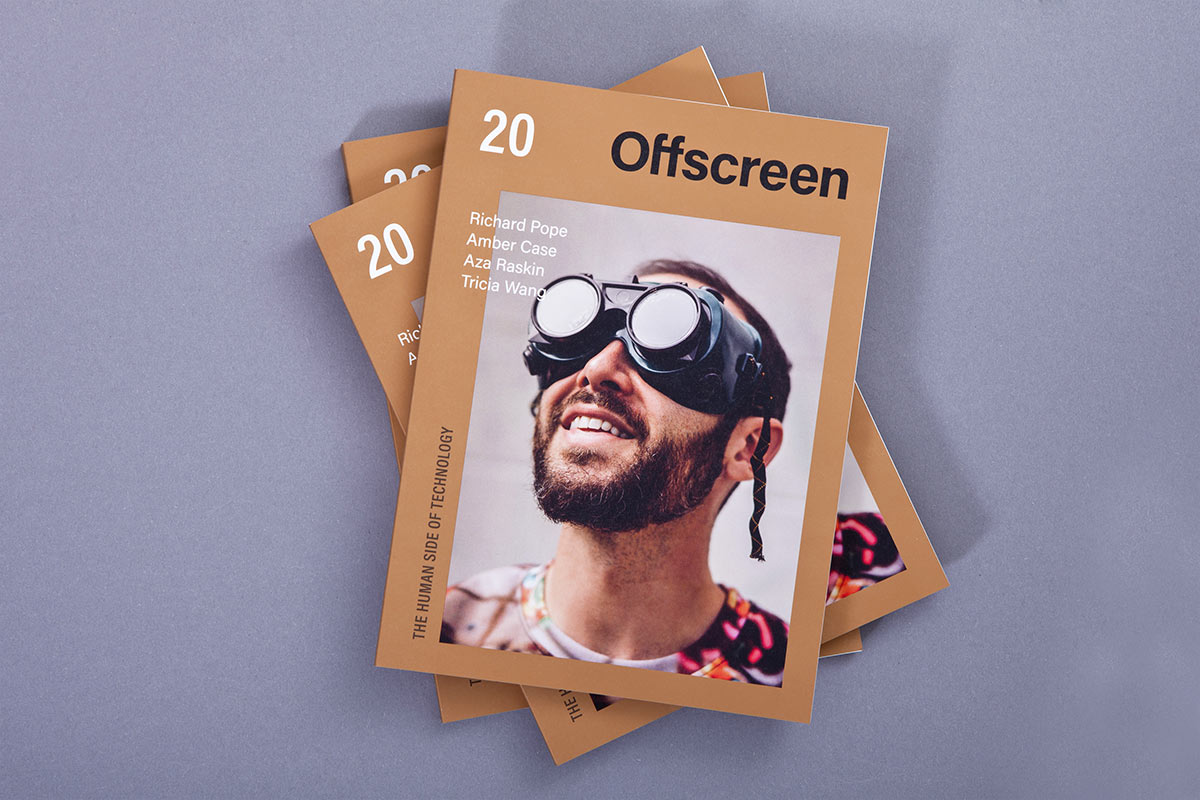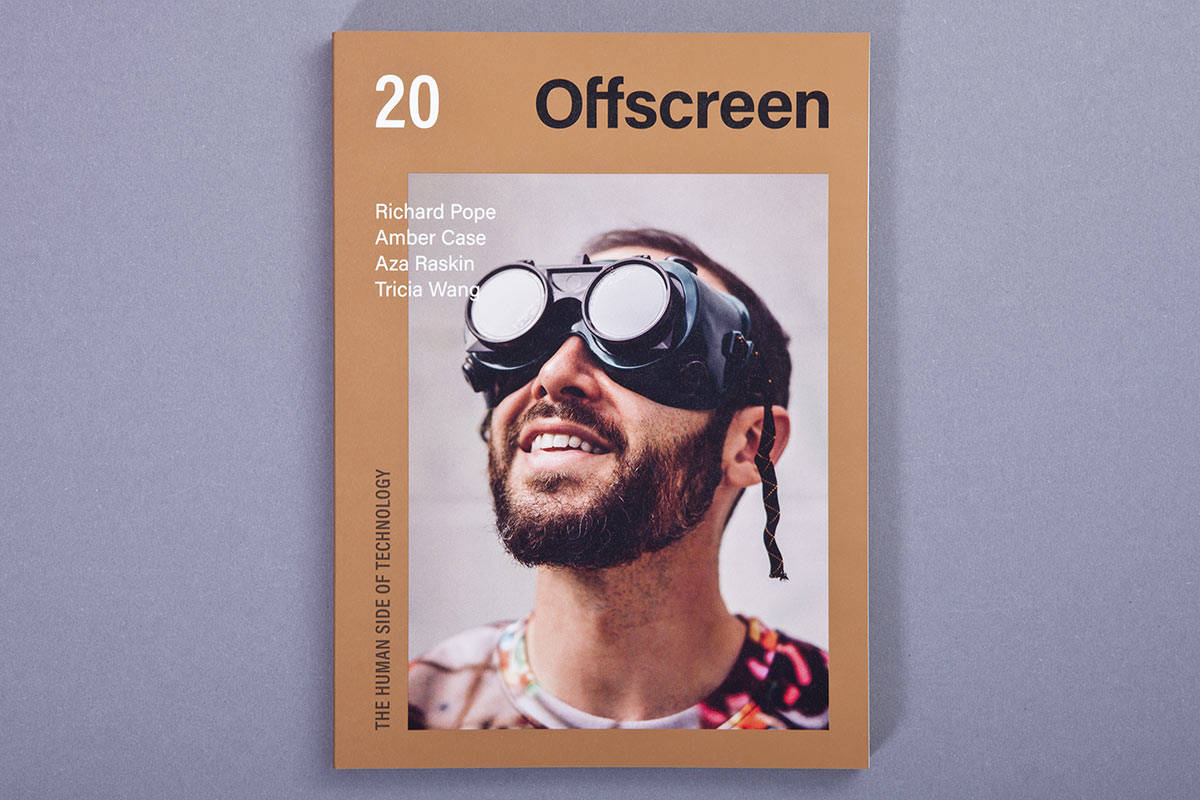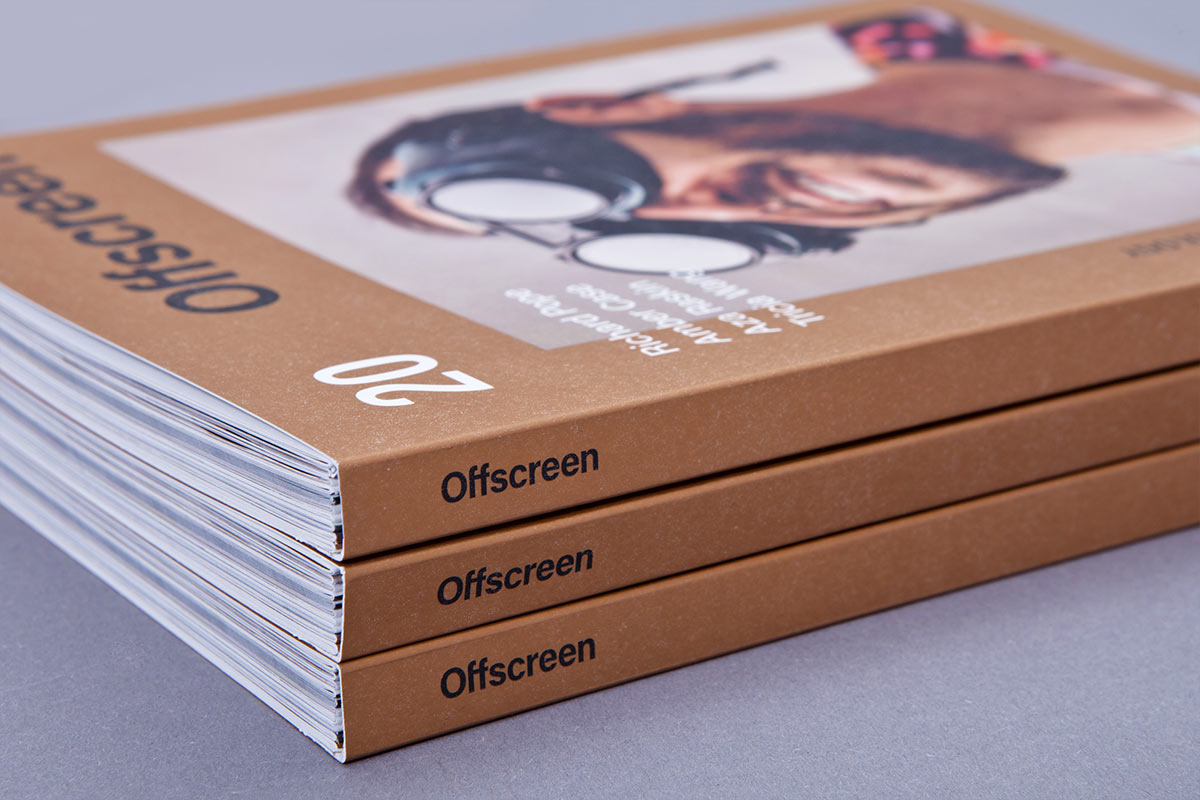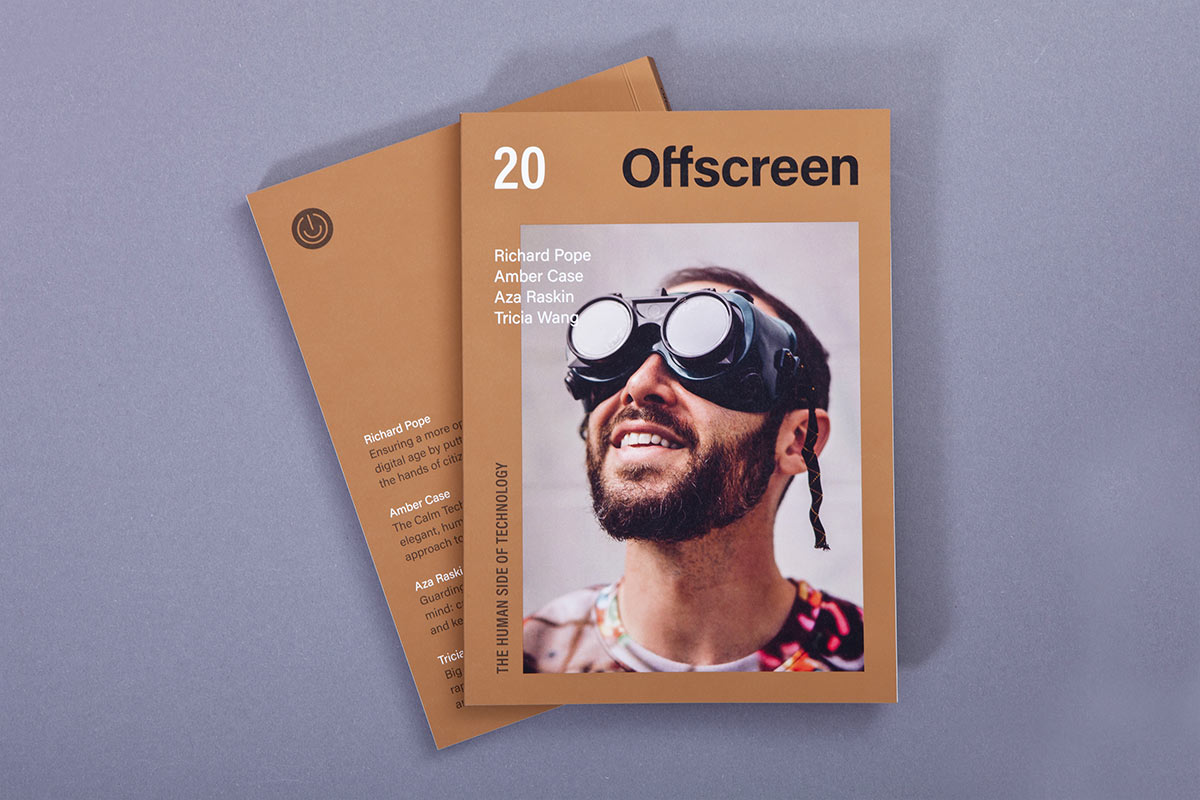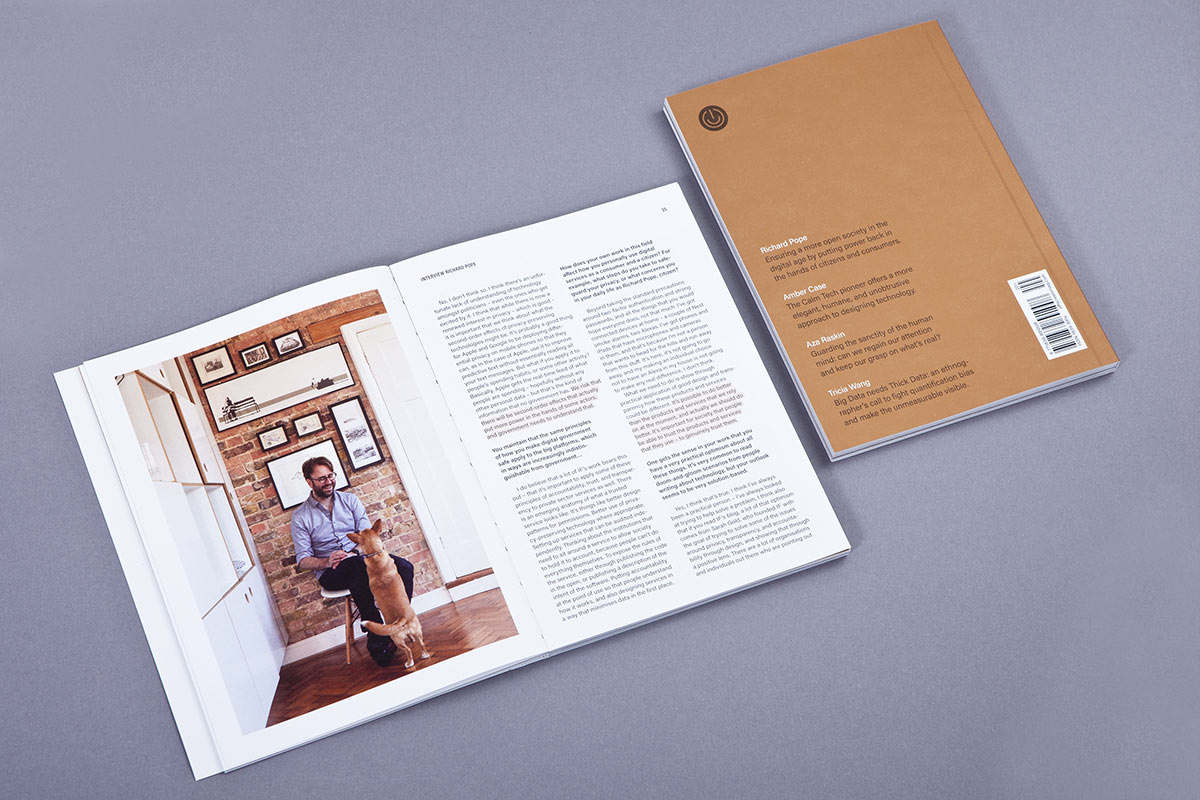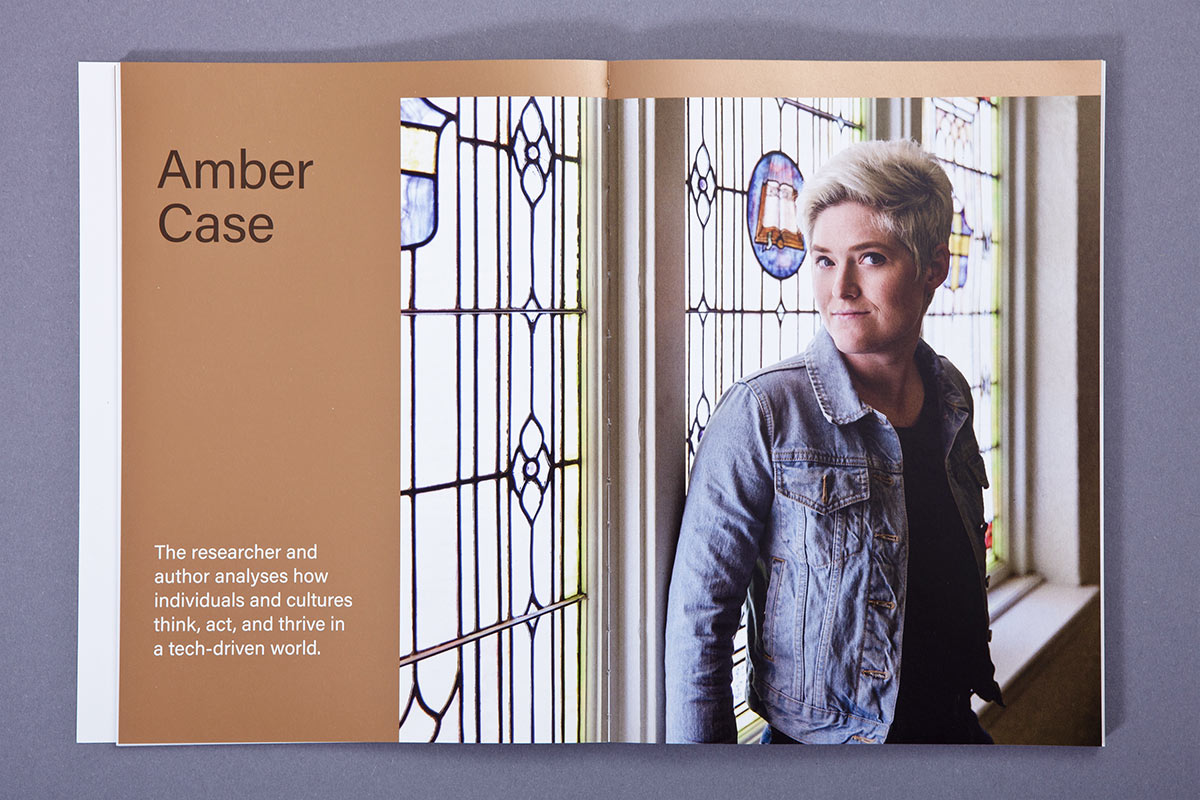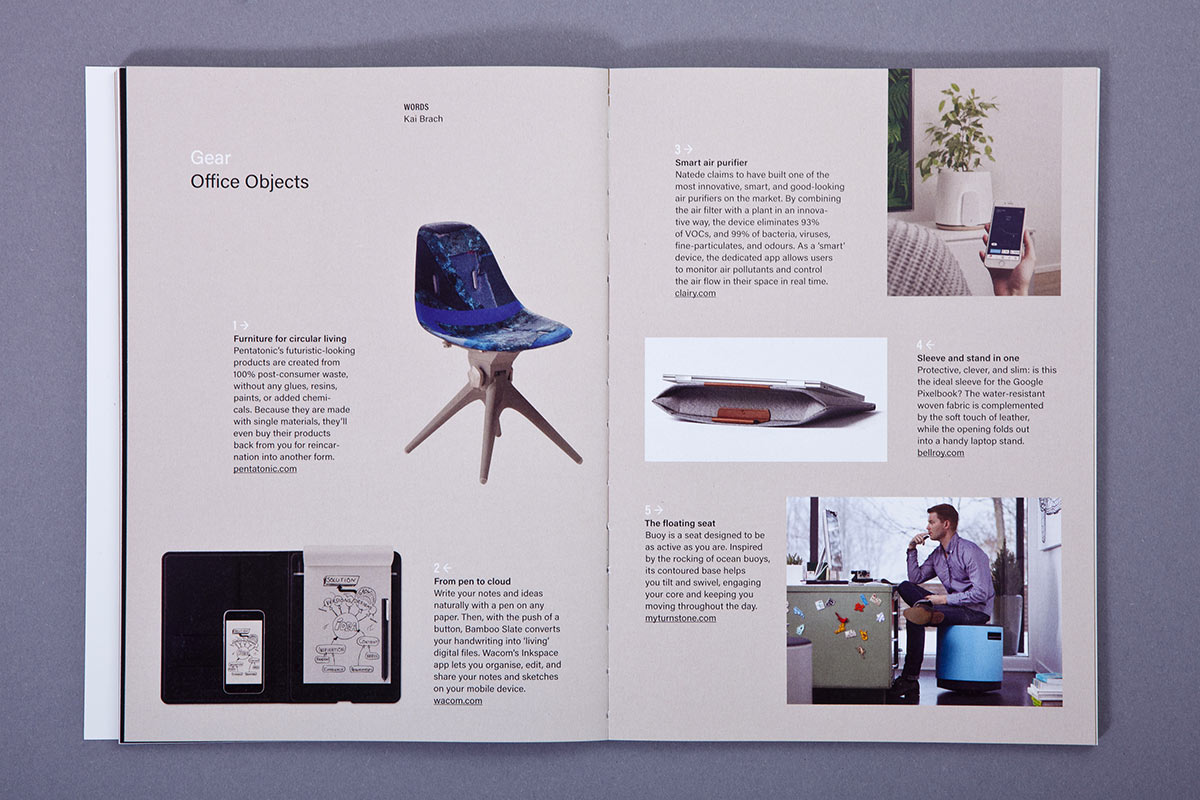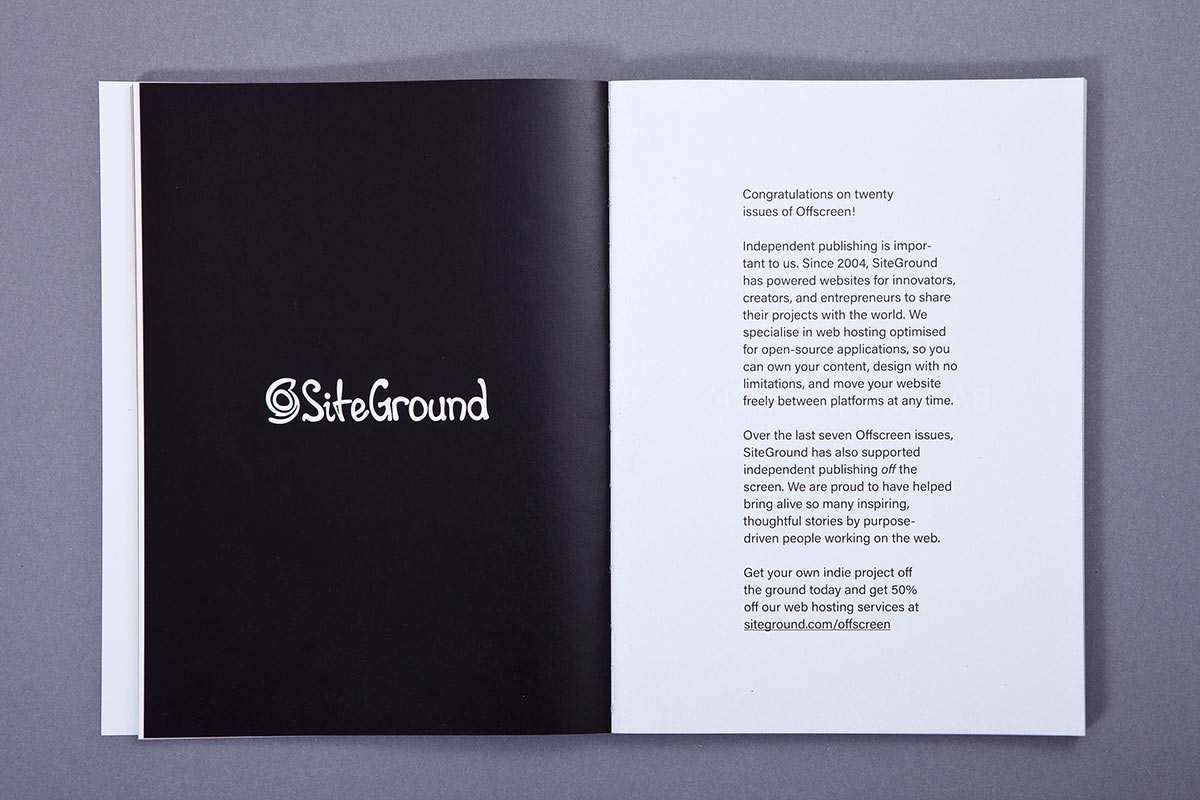Stranger Things
Food for thought by Molly Flatt.
The Framing of a Now-Moment
Food for thought by Alex Warren.
Projects
A collection of projects and ideas worth exploring, curated by Kai Brach.
Interview
Richard Pope, the designer and advocate with a vision for governments and companies that encourage an open, participatory society.
A Day With
Spend a day with Sara Soueidan.
A Day With
Spend a day with Álvaro Vargas.
Interview
Amber Case, the researcher and author analyses how individuals and cultures think, act, and thrive in a tech-driven world..
Rules of Business
Guiding principles for doing business, by Lina Patel.
Gear
A collection of useful and beautiful office products, curated by Kai Brach.
Interview
Aza Raskin, the design thinker on how society’s interaction with technology is the fundamental problem of our time.
Profile
Sean McGeady speaks to Anne Kjær Riechert, co-founder of the ReDI School for Digital Integration, a Berlin-based non-profit that helps refugees learn tech skills and start a new career.
Workspace
A tour around the offices of Headspace, Mozilla, Slack, TRA, and WIX.
Interview
Tricia Wang, the global tech ethnographer offers a human-scale model for organisations obsessed with data.
Ten Things I’ve Learned
Ashanya Indralingam and Ramsey Nasser share ten life lessons from working on the web.
Looking back
With close to 90,000 copies shipped, featuring stories by more than 800 contributors, supported by 50 sponsors, hundreds of patrons, and thousands of loyal readers in over 60 countries, we check in with the 100 interviewees from past issues to find out what they are up to today.

